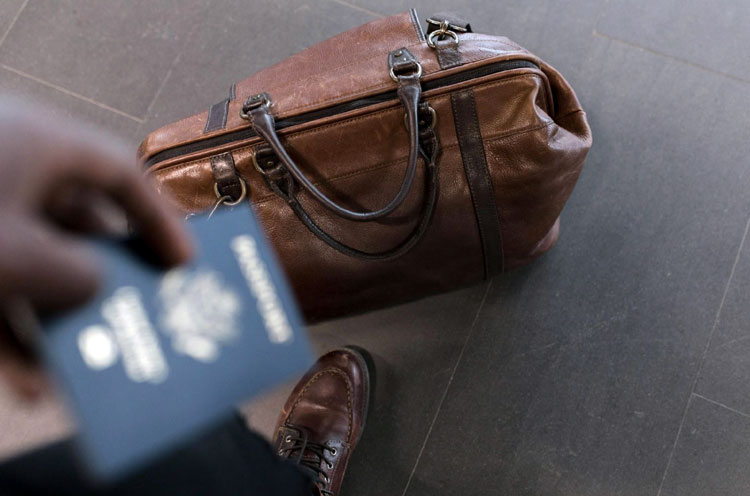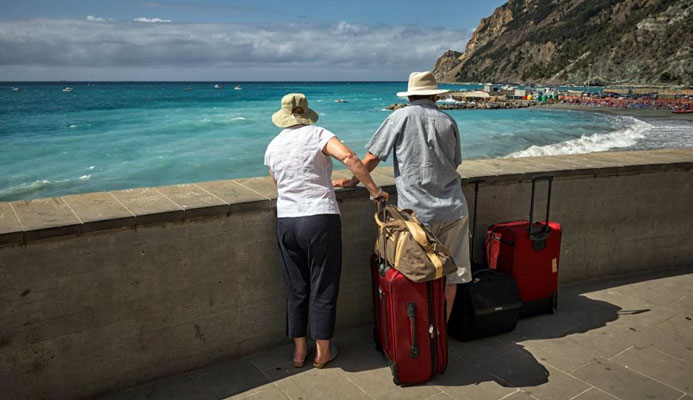Traveling, whether for leisure or business, is meant to bring adventure, relaxation, and new experiences. Even the most carefully planned trips can take an unexpected turn when an accident occurs. From road collisions to slips at airports or incidents involving rideshare vehicles, travel accidents can cause physical injuries, emotional distress, and financial burdens.
Knowing what to do immediately after an accident can make a significant difference in recovery and compensation outcomes. Taking the right steps ensures safety, protects your rights, and provides clarity during an overwhelming situation. Here’s a guide on how to respond effectively when an accident happens during travel.
Stay Calm and Assess the Situation
The moments following an accident are often confusing and frightening. Whether it’s a car crash, a fall, or another incident, the first step is to remain as calm as possible and evaluate your surroundings. Take a moment to ensure that you and anyone else involved are safe from immediate danger.
If you’re in a vehicle accident, move to a secure area away from traffic, but only if it’s safe to do so. If you’re injured, avoid making sudden movements until medical help arrives. The priority should always be personal safety over property or belongings.
Contact Authorities and Report the Incident
Once safety is ensured, report the accident to local authorities. Police or emergency responders will document the event, provide medical support, and create an official report, an important piece of evidence for insurance or legal claims.
If the accident involves a commercial vehicle, taxi, or rideshare service, you should notify the company as soon as possible. For example, if you were injured in a rideshare, you may need to file an Uber accident claim to document the event and begin the process of seeking compensation. Rideshare companies typically require prompt reporting to preserve details about the incident.
Gather Evidence at the Scene
Evidence gathered immediately after the accident can play a major role in supporting your claim or case. Use your phone or camera to take clear photos and videos of the scene, including vehicle damage, road conditions, signage, and any visible injuries.
If other people witnessed the incident, politely ask for their contact information. Witness statements can corroborate your account of what occurred. In the case of a transportation-related accident, note important details such as the vehicle’s license plate number, the driver’s name, and the company or agency involved.
Keep copies of any travel tickets, reservation records, or receipts connected to the trip, as they may help establish timelines and responsibilities. Thorough documentation helps ensure that you can present an accurate and detailed account when dealing with insurance providers or legal representatives.
Seek Medical Attention Immediately
Even if you believe your injuries are minor, always seek medical care after an accident. Some injuries, such as concussions, internal bleeding, or soft-tissue damage, may not show symptoms immediately but can become serious if left untreated.
Visiting a doctor or urgent care facility ensures that injuries are properly diagnosed and treated. Medical professionals will record your condition and treatment plan, creating valuable documentation for future claims. This medical record serves as evidence that the injuries resulted directly from the accident and were addressed promptly.
Keep all medical receipts, prescriptions, and discharge summaries. They support your case and help track expenses if reimbursement or compensation is needed.
Notify Your Insurance Provider
If your accident involves a vehicle or transportation service, contact your insurance provider as soon as possible. Many insurance companies have strict deadlines for reporting incidents. Delaying notification could impact your ability to receive compensation.
Provide them with all necessary details, including where and when the accident occurred, who was involved, and what damages or injuries were sustained. Avoid speculating about fault or making recorded statements without understanding your rights. Stick to factual details and let the investigation process unfold.
If you were traveling abroad, review your travel insurance policy. Many plans cover medical emergencies, lost property, and trip interruptions caused by accidents. Understanding your coverage ensures that you can access financial support quickly when unexpected situations arise.
Understand Your Legal Rights
Travel-related accidents can be complex when they involve third parties or occur in different jurisdictions. Laws governing liability and compensation vary by state and country, making it important to understand your rights before proceeding with claims or settlements.
Consulting with a personal injury attorney or legal expert familiar with travel and transportation accidents can help clarify your options. They can guide you through the process of filing claims, negotiating settlements, or taking legal action if necessary.
An experienced attorney will help determine who is responsible for the accident, whether it’s a driver, property owner, transportation company, or another party. They can help calculate appropriate compensation for medical expenses, lost wages, and emotional distress.
Keep Records of All Expenses
Accidents often lead to unexpected costs beyond medical bills. Keep detailed records of all related expenses, including travel interruptions, transportation replacements, hotel stays, and out-of-pocket payments for temporary assistance.
If the incident forces you to cancel or delay your trip, document communication with airlines, hotels, and travel agencies. Many travel insurance providers require proof of financial loss before processing reimbursements.
Organizing your receipts and correspondence makes it easier to file comprehensive claims and recover expenses. Digital copies stored in cloud-based folders ensure accessibility even if original documents are misplaced.
Emotional Recovery After an Accident
Physical recovery is only one part of the healing process. Accidents can take a toll on emotional well-being, leading to anxiety, fear, or stress. It’s common for travelers to feel hesitant about returning to certain activities or destinations after a traumatic event.
Seeking emotional support through therapy, counseling, or peer groups can be beneficial. Talking about the experience helps process emotions and rebuild confidence. Surrounding yourself with supportive friends and family can make the recovery process smoother and less isolating.
Practicing mindfulness techniques, such as deep breathing or journaling, can help manage lingering anxiety. Recovery should be approached holistically, addressing both physical and emotional needs.
Preventing Future Accidents
While no one can completely eliminate risk, preparation significantly reduces vulnerability during travel. Before any trip, research local laws, emergency numbers, and nearby medical facilities. If driving, check vehicle conditions, plan routes ahead, and ensure you’re well-rested before long drives.
Always wear seat belts, follow local traffic regulations, and avoid distractions while traveling. If you’re using rideshare services or public transportation, confirm driver credentials and verify vehicle details before entering.

Preparedness and awareness are your best safeguards on any journey. With the right steps, you can turn an unexpected event into a moment of resilience, regaining control over your experience and continuing to explore the world with confidence and care.












